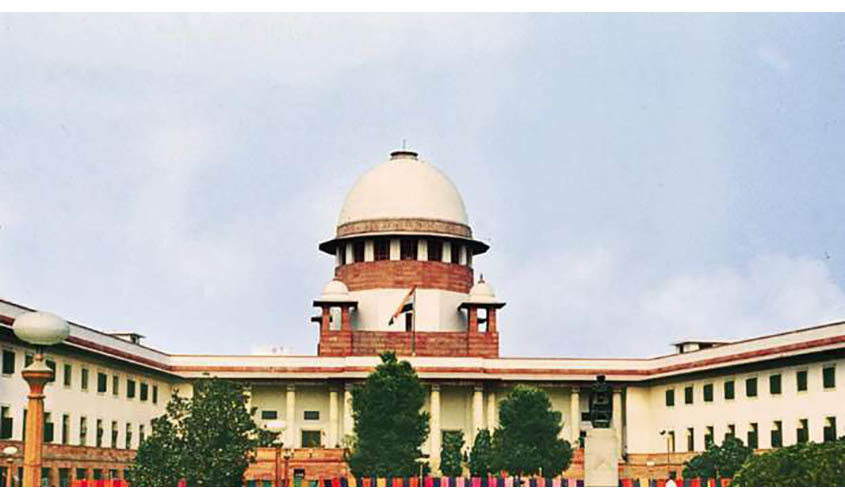Courts of law must be viewed with seriousness and evoke highest degree of trust amongst its citizenry.
The conduct of Rajeev Dhavan, senior advocate, of trashing a document at a hearing purported to be a map of the “birthplace” of a revered deity, of a party before the court, has not only evoked deep anguish amongst the large populace, but has also raised eyebrows in legal circles, regarding the sanctity of court proceedings.
The framers of the Constitution of India, in order to uphold the majesty of the Superior Courts, incorporated Articles 129 and 215 in the Constitution bestowing the power to punish for contempt. The courts of law in any country must be viewed with utmost seriousness and evoke the highest degree of trust amongst its citizenry and residents. They must be held in high regard as lofty institutions to be looked up to with the highest respect among the comity of nations as zealous upholders of the “Rule of Law”.
The Constitution in Article 129 thus stated “The Supreme Court of India shall be a court of record and shall have all the powers of such court including the power to punish for Contempt of itself.” In the same language the power was conferred on the High Courts also. The procedure to investigate and punish a contemnor is provided in Article 142 of the Constitution of India as also by the enactment of a statute the Contempt of Court (Act 1971) in which Section 2 defines “criminal contempt” as any action which scandalizes or tends to scandalize and hence would lower the authority of the court, prejudice or tends to interfere with the judicial proceeding and/or administration of justice.
To constitute criminal contempt, it is not necessary that any publication or other acts should have actually resulted in scandalizing or lowering the authority of the court but it is enough that the act is likely to result in scandalizing. “Scandalize” means to bring about reproach, dishonour, disgrace, to offend the feelings or conscience; it also means to offend the moral feelings, and to make a public scandal of, to utter false or malicious reports of a person’s conduct, slander, or to bring some discredit or to disgrace.
The social media posts and media reporting, print, online and electronic give a distressing impression that a senior counsel for a party, trashed a document presented in court with impunity and later justified it, as having been prompted by the “pater familias” of the judicial system hearing the matter, thus impinging on the impartiality.
Contempt of Court as evolved today is due to the work of erudite jurists like Oswald, Black Odgers and publications such as Halsbury’s Laws of England. Criminal contempt is widely treated as a “common law offence” and as summarised by Lord Hardwick has three components: i) scandalizing the Court itself; ii) abusing the parties who are concerned in the cause in the presence of the Court; iii) prejudicing the public before the cause is heard, and I would like to add, before it is decided.
In Australia, even refusing to stand up in court is treated as contempt and immediate punishment may be imposed. In Canada, term of imprisonment could extend to five years. In Hong Kong, immediate punishment could be awarded for insult to a judge or justice, witness or officers of the court, inter alia misbehaviour including use of mobile phone. Similarly, in Belgium and European countries punishment is awarded immediately. In Singapore, the most unsparing of all, proof of damage is unnecessary. The inherent tendency test is applied, whether public confidence in the “administration of justice” would be impaired.
The Supreme Court in its latest judgement reported in JT 2019 (5) SC 336 on conviction in Contempt of an Advocate delivered on 10 May 2019, in Rakesh Tiwari, Advocate vs Alok Pandey CJM in Criminal Appeal No.1223 of 2015 cited several of its judgements, the extracts of which are as follows “…He [a legal practitioner] is bound to conduct himself in a manner befitting the high and honourable profession to whose privileges he has so long been admitted; and if he departs from the high standards which that profession has set for itself and demands of him in professional matters, he is liable for action…” “At the same time, a member of the Bar is an officer of the Court and owes a duty to the court in which he is appearing. He must uphold the dignity and decorum of the court and must not do anything to bring the court itself into disrepute…the whole administration of justice…” “Courts of law are structured in such design to evoke respect and reverence for the majesty of law and justice…” “But there may be other ways (in) which a malefactor’s conduct and actions may pose a real and imminent threat to the purity of court proceedings, cardinal to any court’s functioning, apart from constituting a substantive offense and contempt of court and professional misconduct.”
The Supreme Court has upheld contempt proceedings against parties and advocates for professional misconduct and scandalizing the court in many forms. In fact, in the Supreme Court in Mahipal Singh Rana vs State of UP (2016) 8 SCC 335, an advocate was convicted inter alia for throwing away papers handed out to him.
Dr G. Venkatesh Rao is Senior Advocate, Supreme Court of India.

